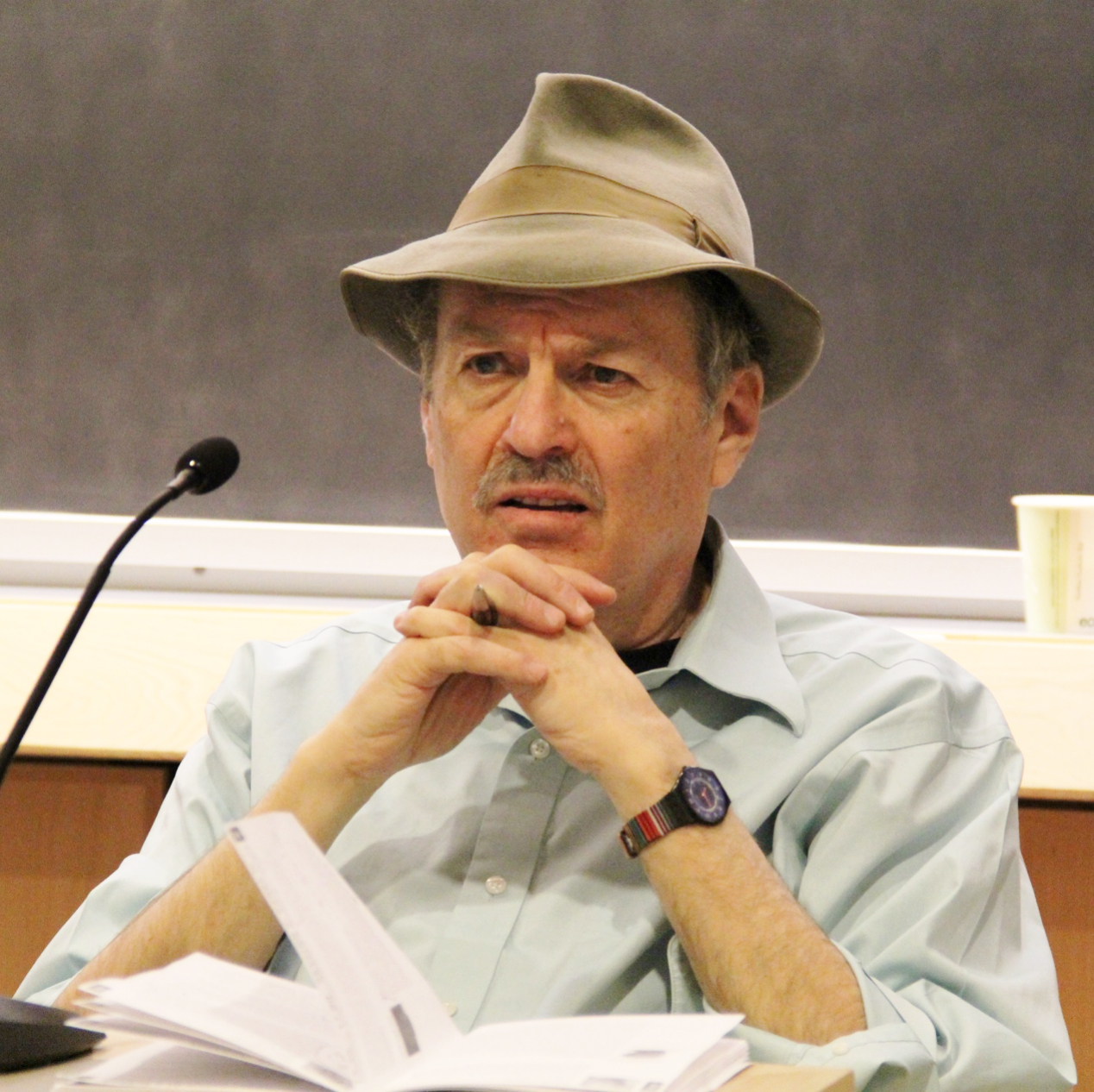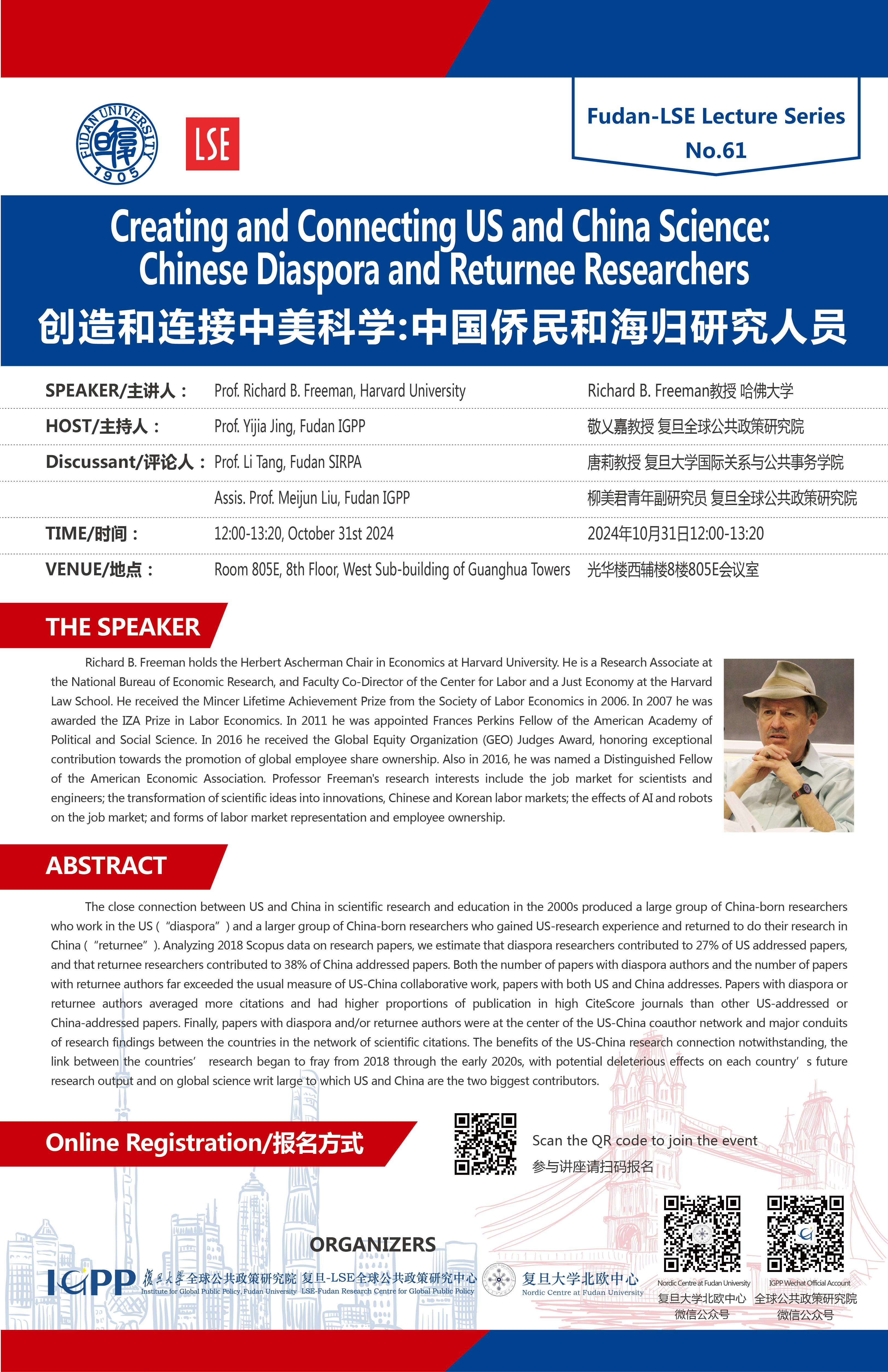
Fudan-LSE Lecture Series No.61
Title:
Creating and Connecting US and China Science: Chinese Diaspora and Returnee Researchers
Speaker:
Prof. Richard B. Freeman, Harvard University
Host:
Prof. Yijia Jing, Fudan IGPP
Discussant:
Prof. Li Tang, Fudan SIRPA
Assis. Prof. Meijun Liu, Fudan IGPP
Time:
12:00-13:20, October 31st 2024
Venue:
Room 805E, 8th Floor, West Sub-building of Guanghua Towers
https://www.wjx.cn/vm/hQJB49g.aspx#

The Speaker:

Richard B. Freeman holds the Herbert Ascherman Chair in Economics at Harvard University. He is a Research Associate at the National Bureau of Economic Research, and Faculty Co-Director of the Center for Labor and a Just Economy at the Harvard Law School. He received the Mincer Lifetime Achievement Prize from the Society of Labor Economics in 2006. In 2007 he was awarded the IZA Prize in Labor Economics. In 2011 he was appointed Frances Perkins Fellow of the American Academy of Political and Social Science. In 2016 he received the Global Equity Organization (GEO) Judges Award, honoring exceptional contribution towards the promotion of global employee share ownership. Also in 2016, he was named a Distinguished Fellow of the American Economic Association. Professor Freeman's research interests include the job market for scientists and engineers; the transformation of scientific ideas into innovations, Chinese and Korean labor markets; the effects of AI and robots on the job market; and forms of labor market representation and employee ownership.
Abstract:
The close connection between US and China in scientific research and education in the 2000s produced a large group of China-born researchers who work in the US (“diaspora”) and a larger group of China-born researchers who gained US-research experience and returned to do their research in China (“returnee”). Analyzing 2018 Scopus data on research papers, we estimate that diaspora researchers contributed to 27% of US addressed papers, and that returnee researchers contributed to 38% of China addressed papers. Both the number of papers with diaspora authors and the number of papers with returnee authors far exceeded the usual measure of US-China collaborative work, papers with both US and China addresses. Papers with diaspora or returnee authors averaged more citations and had higher proportions of publication in high CiteScore journals than other US-addressed or China-addressed papers. Finally, papers with diaspora and/or returnee authors were at the center of the US-China coauthor network and major conduits of research findings between the countries in the network of scientific citations. The benefits of the US-China research connection notwithstanding, the link between the countries’ research began to fray from 2018 through the early 2020s, with potential deleterious effects on each country’s future research output and on global science writ large to which US and China are the two biggest contributors.





